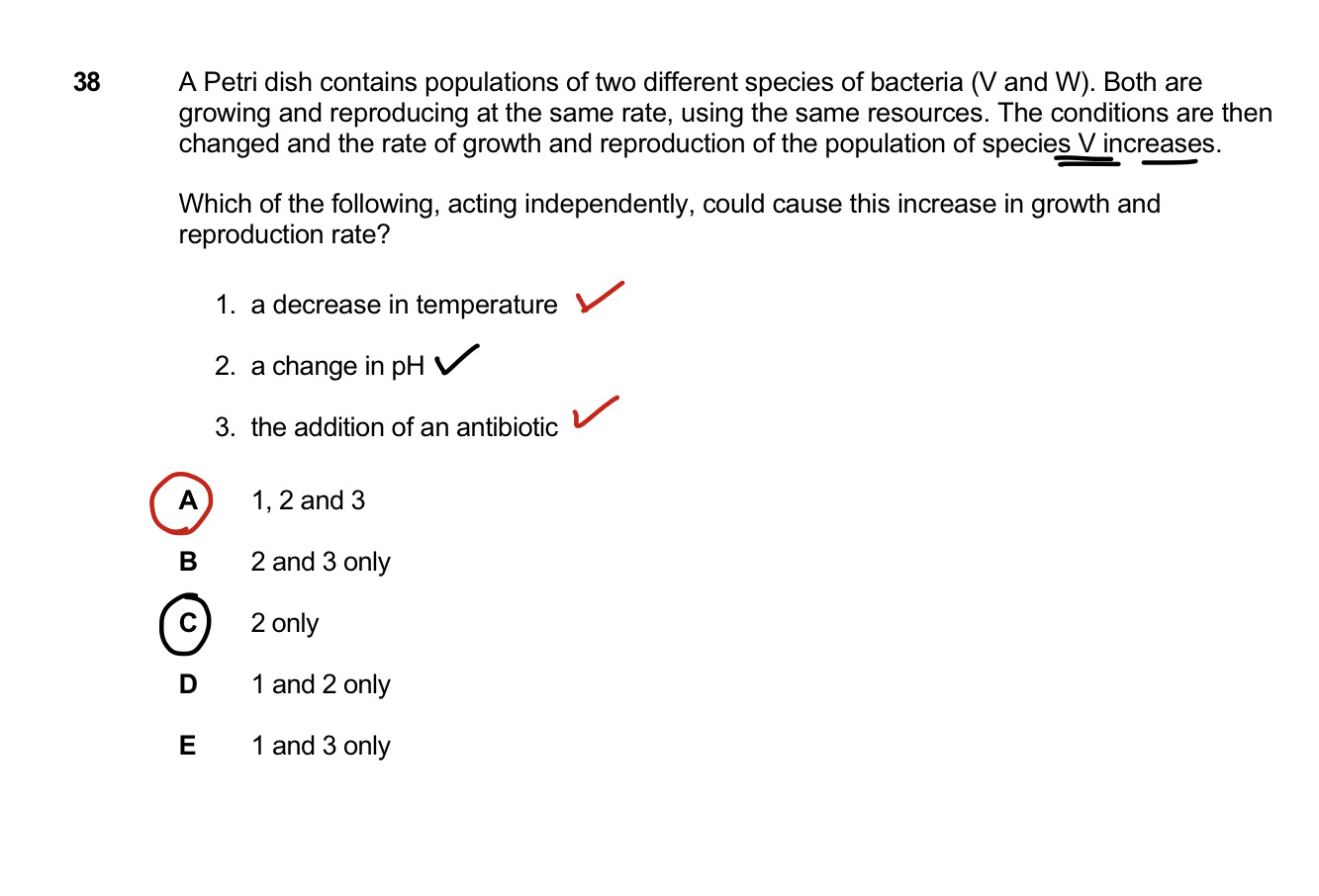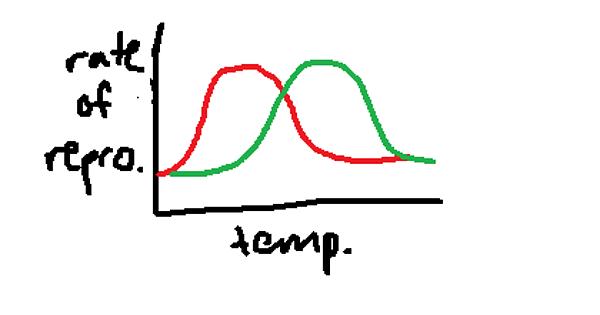Hi!! Could someone explain why the answer is A? I understand that we need to consider all possibilities but I don’t know why decreasing below optimum temperature (if it was past optimum in the first place, the enzymes would be denatured so it wouldn’t work at all right) and how ADDING an antibiotic helped the increase in growth. Thanks in advance!!
This is a very tricky question. The answer is simply “anything is possible” haha:D
But seriously, there is a valid explanation:
There are 2 species of bacteria, so when we decrease the temperature, one species may be favoured as we get closer to its optimum temperature. Here is an illustration:
Same goes for change in pH, and the addition of an antibiotic can kill the second baterial species and only one will survive and reproduce. Thus more resources will be available and the rate of reproduction will increase:)
Hi!
Darius is right.
This is how i thought about it.
In this particular question they have mentioned that we have two different species of bacteria and due to alteration of a particular condition here temperature the growth of one species increased this might be because certain bacteria favour colder/warmer temperatures since, we have no information regarding the type of bacteria this could be a factor in the growth of a particular species.
hope it helps:)
Oooo because of the competition, it could help one species. But yes definitely need to keep in mind that anything is possible. Thank you so much for the visual representation too:))
Yess, that’s true Ujjwal, thank you!!:))
Hey, just a quick question. If the question was looking at only one species of bacteria could the addition of an antibiotic still be a correct option? It makes sense when looking at it from a competition point of view but I’m wondering if it’s possible when there’s only one species.
I believe not unless the bacteria has developed some resistance as it multiplied to the antibiotic after being exposed to it for a longer period of time.
Actually I think even a single bacterial species could grow faster, because we never know if the antibiotic can be some sort of an epigenetic factor which could turn on certain genes that could lead to faster DNA replication and binary fission in bacteria. So I guess it would still work but correct me if Im wrong:)
OO yes I read that there’s a 2017 article about how it can stimulate bacterial growth, I wonder if it’s considered to be part of the IMAT answers though since it’s a relatively new concept

